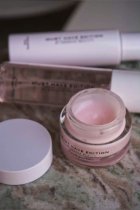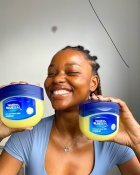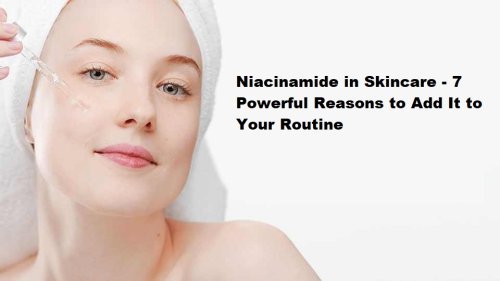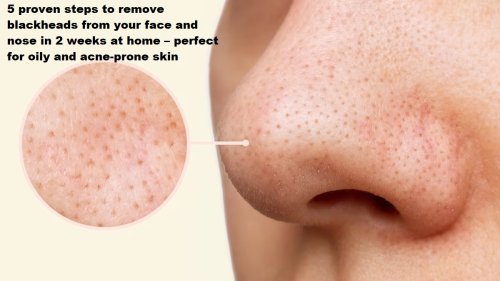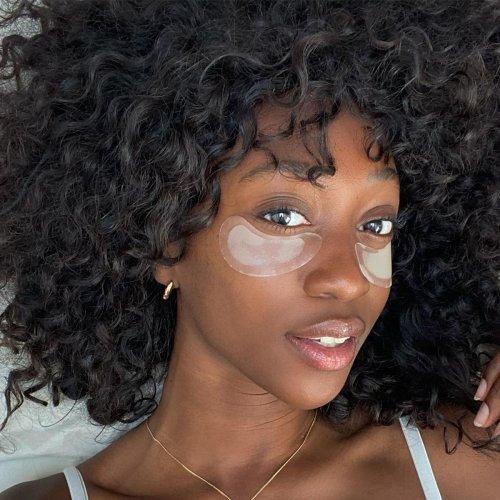Mineral vs Chemical Sunscreen: What’s Safer for Sensitive Skin?
The biggest debate? Mineral vs chemical sunscreen. Which is gentler? Which offers better protection? And most importantly, which one is safer for sensitive skin? Learn the key differences, benefits, and what dermatologists recommend for gentle sun protection.

Mineral vs Chemical Sunscreen: What’s Safer for Sensitive Skin?
If you have sensitive skin, you know how tricky it is to find skincare products that won’t trigger redness, stinging, or breakouts. One product that often causes confusion? Sunscreen. While it's an absolute must-have in any skincare routine, not all sunscreens are created equal especially if you have skin that reacts easily.
The biggest debate? Mineral vs chemical sunscreen. Which is gentler? Which offers better protection? And most importantly, which one is safer for sensitive skin? In this post, we’ll break down the key differences between mineral and chemical sunscreen, the pros and cons of each, what dermatologists recommend for reactive or compromised skin, and how to choose the best sunscreen for your unique skin needs. Let’s help you get sun-safe without irritation.
What Is Mineral Sunscreen?
Also known as physical sunscreen, mineral sunscreen uses natural minerals typically zinc oxide or titanium dioxide to form a protective layer on your skin. It works like a shield, reflecting UV rays away from your skin’s surface.
How It Works:
-
Sits on top of the skin (doesn’t absorb)
-
Reflects both UVA and UVB rays
-
Starts working immediately after application
Pros of Mineral Sunscreen:
-
Less likely to irritate sensitive skin
-
Non-comedogenic (won’t clog pores)
-
Safe for babies, children, and those with rosacea or eczema
-
Reef-safe and eco-friendly
Cons:
-
Can leave a white cast, especially on deeper skin tones
-
May feel thicker or heavier
-
Rubs off easily with sweat or water (needs reapplication)
What Is Chemical Sunscreen?
Chemical sunscreens use active ingredients like oxybenzone, avobenzone, octinoxate, and homosalate that absorb into the skin and convert UV rays into heat, which is then released from the skin.
How It Works:
-
Absorbs into the skin
-
Chemically transforms UV radiation into non-damaging heat
-
Requires 15–30 minutes before it becomes effective
Pros of Chemical Sunscreen:
-
Lightweight and easy to blend (great for daily wear or under makeup)
-
Often transparent (no white cast)
-
Water-resistant versions are good for active lifestyles
Cons:
-
Higher chance of irritation or allergic reactions
-
May sting eyes or inflame rosacea-prone skin
-
Some ingredients (like oxybenzone) are endocrine disruptors
-
Not reef-safe
Which Sunscreen Is Safer for Sensitive Skin?
Mineral sunscreen is generally considered safer for sensitive skin because it doesn’t absorb into the skin. Instead, it sits on the surface and reflects UV rays, making it far less likely to trigger redness, burning sensations, breakouts, or allergic reactions. Dermatologists frequently recommend zinc oxide-based sunscreens for those dealing with eczema, rosacea, or post-procedure skin (such as after chemical peels or microneedling) due to their gentle, non-irritating nature.
Tip: When shopping for sunscreen for sensitive skin, always look for formulas that are fragrance-free, alcohol-free, and dye-free to minimize the risk of irritation.
Dermatologist Recommendations
According to the American Academy of Dermatology (AAD) and leading dermatologists:
-
Choose broad-spectrum SPF 30 or higher
-
Look for “sensitive skin” or “baby” labels (these often use mineral formulas)
-
Avoid oxybenzone, fragrance, alcohol, and parabens if your skin reacts easily
Best Mineral Sunscreens for Sensitive Skin (2025 Favorites)
If you're looking for gentle mineral sunscreens that won’t irritate sensitive skin, here are some top dermatologist-approved picks for 2025:
1. EltaMD UV Physical SPF 41: This tinted mineral sunscreen contains zinc oxide and titanium dioxide, offering broad-spectrum protection with a non-irritating, lightweight formula that blends well into the skin.
2. La Roche-Posay Anthelios Mineral SPF 50: Known for its ultra-light, oil-free texture, this 100% mineral sunscreen is formulated with zinc oxide and is ideal for daily use on sensitive or acne-prone skin.
3. Blue Lizard Sensitive SPF 30 : A favorite for sensitive skin, this sunscreen combines zinc oxide and titanium dioxide in a formula that’s free from parabens and fragrances, making it safe for both face and body.
4. Aveeno Baby Continuous Protection SPF 50: Though made for babies, this zinc oxide-based sunscreen is gentle enough for adults with highly reactive skin. It provides strong sun protection without harsh additives.
Frequently Asked Questions
Q1: Can I use both mineral and chemical sunscreen?
Yes, many products are hybrid sunscreens that combine both for better wear and coverage. However, for sensitive skin, sticking to 100% mineral-based is safer.
Q2: Why does mineral sunscreen leave a white cast?
Mineral particles reflect light and don’t absorb into the skin. Tinted versions or nano-sized formulations reduce this effect.
Q3: Are chemical sunscreens dangerous?
While generally safe, some chemical UV filters (like oxybenzone) have been linked to hormonal disruption and coral reef damage. Sensitive or allergy-prone users should avoid them.
Conclusion
When it comes to mineral vs chemical sunscreen, there’s no one-size-fits-all. But if you have sensitive, reactive, or allergy-prone skin, your safest bet is a mineral sunscreen containing zinc oxide or titanium dioxide. It’s generally gentler, safer for your skin barrier, and consistently recommended by dermatologists. And remember wearing sunscreen daily isn’t optional, it’s essential. Protect your skin now, and your future self will thank you.
Share
What's Your Reaction?
 Like
0
Like
0
 Dislike
0
Dislike
0
 Love
0
Love
0
 Funny
0
Funny
0
 Angry
0
Angry
0
 Sad
0
Sad
0
 Wow
0
Wow
0




